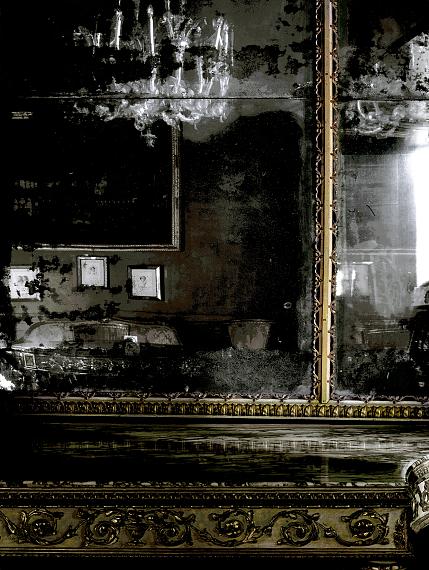
Lorenzo L, 2010-2018
pigment print with artist frame
130 x 100 cm
© Matthias Schaller, VG Bild-Kunst, Bonn
Matthias Schaller »
Leiermann
Exhibition: 11 Feb – 26 Mar 2022
Fri 11 Feb 10:00 - 18:30
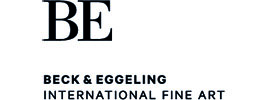
Beck & Eggeling International Fine Art
Bilker Str. 4-6
40213 Düsseldorf
+49 211 -4915890
info@beck-eggeling.de
www.beck-eggeling.de
Tue-Fri 10-13+14-18:30 . Sat 11-16
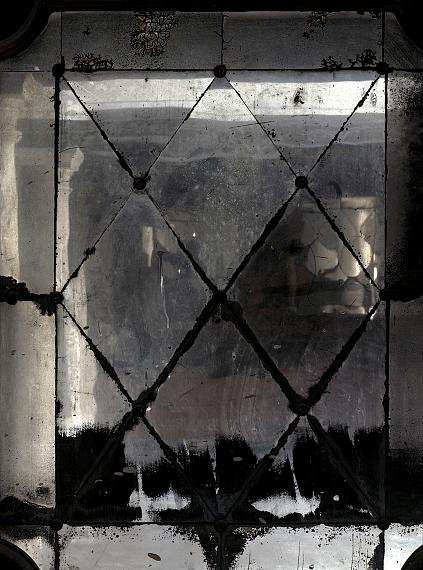
Antonio V, 2010-2018
pigment print with artist frame
130 x 100 cm
© Matthias Schaller, VG Bild-Kunst, Bonn
Matthias Schaller
"Leiermann"
Exhibition: 11 February – 26 March 2022
BECK & EGGELING is presenting the exhibition "Leiermann" (Organ-Grinder) with the series of the same name by photo artist Matthias Schaller. Parallel to the exhibition, the NRW-Forum of the Museum Kunstpalast is showing "Portrait", a wide-ranging overview of Matthias Schaller's photo-series.
Magnificent mirrors, reflecting parts of the interior, characterize the image subject of Matthias Schaller's photographic series "Leiermann". These mirrors, however, have long since passed their heyday. They still hang in Venetian palazzi with a worn patina, cracks and traces of decay.
One looks in vain for the presence of man in these photographs. No one's reflection can be seen, and the rooms in which the mirrors hang seem abandoned. This is the leitmotif of Matthias Schaller's artistic strategy and poetics: the absence of the human subject. The significance of the mirror as a testimony to disappearance and memory has a special role to play here.
In the series "Leiermann", Matthias Schaller alludes to the decline of Venice, whose heyday in the 17th and 18th centuries was characterized by wealth and the Arts were highly valued and promoted. During this period, a culture emerged whose legacy is still relevant to us today, but which came to an end with the founding of the Republic of Italy under Napoleon. The art of mirror manufacturing on the Venetian island of Murano was in demand beyond the country's borders and enjoyed a certain monopoly. The complex and costly process of making mirrors from a compound of polished glass and sheets of tin and mercury was a protected secret and the pride of the city of Venice. The mirrors are still a reminder of this glamorous period and its grandiose personalities, but also show abrupt collapse and decay.
The title of the series is taken from Franz Schubert's "Winterreise", more precisely from the last song of the cycle "Der Leiermann". Matthias Schaller has transferred the interpretation of Schubert's music - pain, grief and loss - into the visual. Anyone who knows Schubert's "Leiermann" and has the melancholy of this song in their head, can feel the pain of the loss of Venice when looking at the photographs. The ghostly and decayed character of the mirrors as well as the absence of the human individual heighten this canon. The artist, who himself lived in Venice for many years and for whom the loss of culture is accompanied by a loss of the city, plays with the two genres of art and captures their proximity to each other.
An artist's book with a text by Mario Codognato has been published in 2019 by the artist's own publishing house Petrus Books to accompany the series "Leiermann".
In addition, Beck & Eggeling will be showing a set from Matthias Schaller's "DISPORTRAIT" series in its showroom, excerpts of which can also be seen in large format in the NRW-Forum of the Kunstpalast.
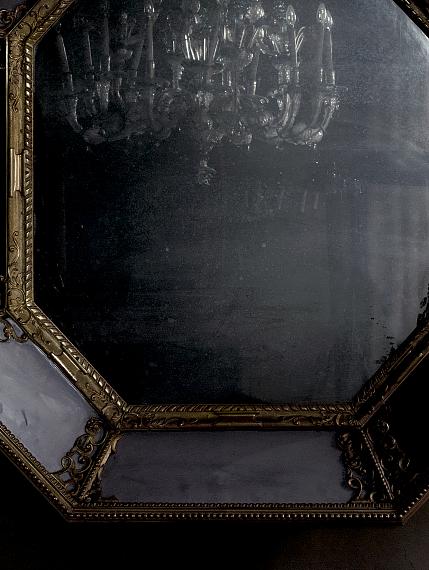
Orlando DL, 2010-2018
pigment print with artist frame
130 x 100 cm
© Matthias Schaller, VG Bild-Kunst, Bonn
Matthias Schaller
"Leiermann"
Ausstellung: 11. Februar bis 26. März 2022
Eröffnung: Freitag, 11. Februar, 10-18 Uhr
BECK & EGGELING zeigt die Ausstellung "Leiermann" mit der gleichnamigen Serie des Fotokünstlers Matthias Schaller. Parallel zur Ausstellung zeigt das NRW-Forum des Museum Kunstpalast die Ausstellung "Porträt" mit einem breitgefächerten Überblick über Matthias Schallers Serien.
Prunkvolle Spiegel, in denen sich in Teilen das umgebene Interieur widerspiegelt, prägen das Bildsujet von Matthias Schallers fotografischer Serie "Leiermann". Diese Spiegel haben ihre Glanzzeiten jedoch bereits lange hinter sich. Sie hängen noch heute in venezianischen Palazzi, haben eine abgenutzte Patina, Risse und Spuren des Verfalls.
Die Anwesenheit des Menschen sucht man auf diesen Fotografien vergeblich. Niemandes Spiegelbild ist zu sehen, und die Räume, in denen die Spiegel hängen, scheinen verlassen. Dies ist das Leitmotiv von Matthias Schallers künstlerischer Strategie und Poetik: die Abwesenheit des menschlichen Subjekts. Der Bedeutung des Spiegels als Zeugnis des Verschwindens und der Erinnerung kommt hier eine besondere Rolle zu.
In der Serie "Leiermann" spielt Matthias Schaller auf den Verfall Venedigs an, dessen Blütezeit im 17. und 18. Jahrhundert von Reichtum gekennzeichnet war und wo die Künste in höchstem Maße geschätzt und gefördert wurden. In dieser Zeit entstand eine Kultur, dessen Erbe für uns heute noch Relevanz hat, die aber mit der Gründung der Republik Italiens unter Napoleon ein Ende fand.
Die Künste der Spiegelmanufaktur auf der venezianischen Insel Murano waren über die Landesgrenzen hinaus gefragt und hatten eine gewisse Monopolstellung. Das komplexe und kostspielige Verfahren, bei der die Spiegel aus einer Verbindung aus poliertem Glas sowie Zinn- und Quecksilberblechen gefertigt wurden, war ein geschütztes Geheimnis und der Stolz der Stadt Venedigs. Die Spiegel erinnern noch heute an diese glanzvolle Zeit und deren grandiose Persönlichkeiten, zeigen aber auch den jähen Bruch und den Zerfall.
Der Titel der Serie ist Franz Schuberts "Winterreise" entnommen, genauer dem letzten Lied des Zyklus’ "Der Leiermann". Die Interpretation von Schuberts Musik – Schmerz, Trauer und Verlust – hat Matthias Schaller hier ins Visuelle übertragen. Wer den "Leiermann" von Schubert kennt und die Melancholie dieses Liedes im Kopf hat, kann beim Betrachten der Fotografien, den Schmerz über den Verlust Venedigs nachempfinden. Der gespenstische und verfallene Charakter der Spiegel sowie die Abwesenheit des menschlichen Individuums erhöhen diesen Kanon.
Der Künstler, der selbst viele Jahren in Venedig gelebt hat und für den der Verlust der Kultur mit einem Verlust der Stadt einhergeht, spielt mit den beiden Kunstgattungen und fängt die Nähe zueinander ein.
Zu der Serie "Leiermann" ist 2019 im eigenen Verlag des Künstlers Petrus Books ein Künstlerbuch mit einem Text von Mario Codognato erschienen.
Beck & Eggeling zeigt darüberhinaus in seinem Showroom auch ein Set aus der "DISPORTRAIT"-Serie von Matthias Schaller, die in Auszügen und großformatig auch im NRW-Forum des Kunstpalastes zu sehen sind.
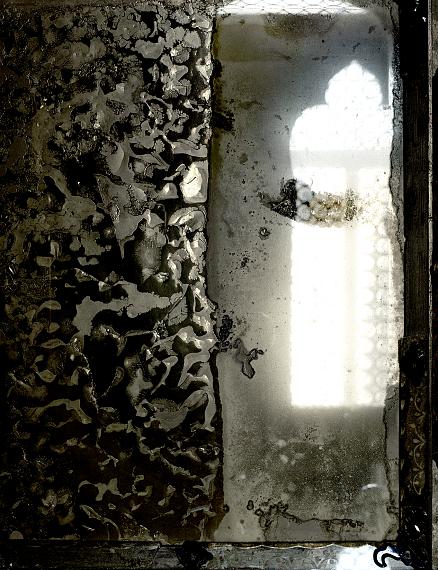
Francesco G, 2010-2018
pigment print with artist frame
130 x 100 cm
© Matthias Schaller, VG Bild-Kunst, Bonn